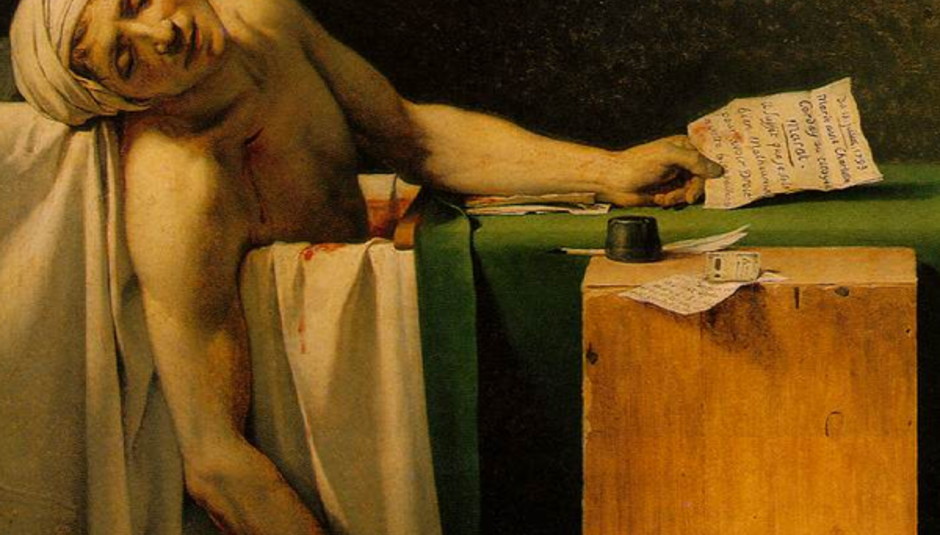The music industry has problems. It isn't digital downloads, it isn't necessarily piracy. It is far more fundamental than that. It has forgotten how to maintain careers. That isn't to say the world has been wiped of 'career artists' but the truth is they are a rapidly diminishing breed.
By career artists I don’t mean Girls Aloud. I mean bands like The Cure, Pink Floyd, Genesis (much as I personally despise them); artists like David Bowie and David Byrne. Now, this isn't to blame those like me that labour in the music industry. We have a part to play, for sure, but we are not the entire solution to things, nor are we exclusively responsible for this state of affairs.
The main thing an artist of this stature needs is time. I will publicly mock anyone who can dare to suggest that any band or artist of standing has made their best album first. The Stone Roses does not count, I mean bands who sustain. I love the Roses but they are a cult band. Music is art, and art improves with time in nearly every case. You get the odd one that comes out fully formed so perhaps I won't mock but I think you get the point.
So, firstly, why are these acts so important? Economically, these artists are vital because they drive interest as their careers and their fanbase grows. Look at Britpop, the last explosion of sales and part of the problem as I shall explain shortly. Are you seriously suggesting that Sleeper would not only have sold that many records but in certain magazines have been compared to Blondie were it not for the collective madness that a truly strong set of bands and singers at the top of the tree can set off. Blur sell millions, Sleeper sell hundred of thousands. Bums on seats, as theatre types say.
Secondly these artists are vital as they sell records across the world. Which not only means more sales but also more longevity as, once taste is established, it seems different cultures both buy in and buy out at different times. Initial costs (recording and the advance) can be spread across multiple markets meaning that the label makes more money, for a longer time from more sources. That’s before you even start to consider the options outside of record sales such as syncs (advertising, films) for the label and the huge increase in live and merchandise revenues for the artist.
It would take a huge leap of imagination to argue that the raw material that creates these artists simply doesn’t exist anymore. The nature of art is that a reasonably predictable amount of short-term, mid-term and long-term artists come through in every generation. The music industry is a very young industry in relation to its brethren in literature, film and theatre but we now have 50 or so years of popular music from which we can draw analysis. It seems to me that it isn’t the artists and their abilities that have changed, it is the industry, the media and the fans themselves that are driving this ever decreasing circles of careers by their actions. These bands and individuals are out there, we are either not finding them or killing them before they get anywhere. Either way, as an industry, we are at fault.
To start, let’s go sacred cow slaying. The overriding love affair that the music media seem to have with punk is misguided, erroneous and one of the prime killers of current musical talent. Punk was, we are told, a reaction to the bloated mess of prog rock and the idea that only musicians could play popular music. Commentators point to punk as the moment at which the spirit of the early rock n roll was recaptured from the dinosaurs. Well, I hate Rush and Yes as much as the next man but I also think that virtually all the punk bands were shit. Beyond that subjective judgement what is plain to see for anyone who cares to take the time is that punk made decent musicians afraid to demonstrate their talent. How else would Sid Vicious, an idiotic, talentless, moronic thug, become the poster boy of the movement? Bands actually played down to the crowd for fear of not being ‘cool’ and thus was the first tyranny born, the idea that how a band looks and acts is as or more important than their music. Punk is fine as a catalyst for good artists to prosper and its fallout created a scorched earth in which a golden age of British alternative bands (and therefore long term artists) flourished from The Smiths and The Fall to Echo and The Bunnymen and the whole Two Tone movement and beyond. But the media fundamentally confuse the effect of punk with the actuality and invest long term importance in the short term kick of the movement and short term significance in the long term ripple effect of the sea change it brought about.
Taking this idea of what makes a great band from punk, even those bands of the 80s were careful not to discuss their music in the media and the media made it abundantly clear that such conversations were not interesting to their readers. Thus the cliché of "we make music for ourselves and if anyone else likes it, it’s a bonus" was written into music media lore as the ultimate dull attitude for a band. But, think about it. The alternative is a band that make music for fame, wealth, notoriety. Is that a better reason to create? Did Shakespeare write for those reasons? And why should comparing our best pop music with Shakespeare be a ridiculous thing to do? The idea of the artist as an instrument of social change is inherently wrapped up in punk. Apply this to the early Beatles, The Kinks, Dave Clark Five, Supremes, Four Tops, again pick your favourite and you at least wonder what would have happened and how many of their later works would have seen the light of day. Some bands are political or social but that is not a pre-requisite of making great music.
This idea of cool now firmly transplanted to the UK alternative media of NME, Sounds and Melody Maker, things were still bearable for the career artist as to reach the mainstream media and sell a lot of records still took time and therefore necessitated development. That labels were prepared to finance that development was down to a recognition by those at the top end of the majors that they needed career artists to build the back catalogues that remain their only resource. The biggest advantage of punk, the growth of the independent label, allowed artists to make their more naïve music at a lower level before transferring to the big boys when they were more mature (another hate word post punk in the music media) and therefore making better music. See REM for the ultimate example of this.
So to sacred cow two, Britpop. Talk to anyone who worked in the industry around that time and the majority will bemoan the loss of those heady days of the mid 90s when it seemed records would sell forever. The truth though, is not quite so prosaic. Britpop was the second major killer of the albums artist after punk’s first assault. Album artists were pushed into pop marketing strategies by labels that forgot that catalogue artists do not work on the dynamic of hit singles and first week sales. Throw in a media that couldn’t resist self congratulation as the latest hottest new act shot into the Top 5, greedy managers pushing horrendous deals far removed from anything sensible and A & R under intense pressure from the higher ups to "find a Blur /Suede/even bloody Sleeper" and you can see how the whole pack of cards would come crashing down. It was the music biz’s very own credit bubble / credit crunch and we are still seeing the effects. Britpop eliminated the underground and everything became about chart position. Britpop fired a double whammy in that, in the race to turn the alternative scene into the new mainstream, all manner of pseudo indies (hello Nude, Laurel, Indolent, Mother) muddied the waters of what was and wasn’t a major label scam whilst the original indies (Creation, 4AD, Rough Trade) seemed to get blown away by this commercialization of their territory and wither on the vine. Britpop killed the alternative scene and with it, the route for bands to learn their craft, build their fanbase and experiment with their ideas in an environment that at least gave them a fighting chance of getting to album two.
The music buyers don’t escape here either. The tyranny of cool is now so embedded in our culture that the public fully subscribe to this nonsense on a regular basis. Thus we are bombarded with a succession of artists and scenes that last for shorter and shorter periods as the music buying public react like crack addicts to the latest musical sensation. Across the culture we are becoming more and more susceptible to knowing the price of everything and the value of nothing. We consume music as we consume fast food. We drive this nonsense marketing so Amy Winehouse is of value for her addictions, not her incredible voice. Debut albums at Number One for one week is so regular it is unremarkable but it is undoubtedly not sustainable. To really make matters worse, Britpop meant everyone got into ‘indie’ and the end game is that some people now seriously consider the likes of Keane and Scouting For Girls to be part of the ‘alternative’ scene.
So, I hear you say, if things are that grim what’s the point? The answer is, of course, ridiculously simple. Firstly there has to be a realisation that if you want more U2s, Smiths, REMs etc then you have to show some loyalty. This is as straightforward as not sacking your manager half way through his first season if you want to win the Premiership to get topical. If you sign a band then surely you believe in them beyond the chart position of single two or three. If you don’t, don’t sign them. There are sure to be bands that readers of this will identify as ‘shoulda beens’ and I have plenty of my own. All were scuppered because the plug was pulled before they had even got going. And, in this, I may be the only person in the industry who feels some sympathy for Joe Lean, a casualty of fashion signing if ever there was one. I don’t think he was a potential albums artist before you get all exercised and rant and spit at the screen but I do think the money wasted on him would have funded a couple of good potentials.
Secondly, labels have to be clear whether they are signing acts for their music or their haircuts. Either is valid but don’t sign for one and then pretend it is for the other. I have no problem with pop bands being marketed as pop bands. Sometimes you hit paydirt and turn up a Jackson 5, a pop band that become an album band. However, the reverse is not true, you cannot market an albums band in a pop way and retain their credibility and long term potential. The all too often discussion of "will we be on the Radio One playlist" in meetings at labels with artists on their second single and the wave of misery across the table that hits if the answer is no has to stop.
Thirdly, stop signing bands for stupid amounts of money and don’t think offering a 360 deal will mean that amount somehow becomes more realistic. 10% of nothing across all revenue streams is still nothing. Unless you happen to land on the new Inspiral Carpets, their t shirt sales are not going to claw back your 200K. If the band won’t sign for less then don’t sign them. Let one of your rivals have ten minutes in the sun when they get a bit of press or a ‘Ones To Watch’ moment or a Zane Lowe session and remember, in a year they will still be horrendously unrecouped and that same label will have to drop them.
For me the fourth (and my final) change of approach is the most important. Remember that the artist is driving their art. So, let them. If you keep the costs down and sign them on the basis that you want to make multiple albums and you really believe in them then why not dispense with the armies of radio mixers, stylists, biog writers, blog fixers, prs, expensive photographers armed with photoshop and street teams with clipboards harassing their potential audience at every show. How about letting the artist grow a little? How about encouraging the artist to develop their music and, who knows, they might actually value your input if it’s an opinion rather than a diktat. It speaks volumes that the current love fest engulfing Elbow is full of those across the media and the industry that had the band written off not so long ago. By chance rather than design if what we are told is to be believed, here is a band that are breaking on their fourth album without any of the hype and positioning that we inflict on new artists. Like REM before them, they are breaking with a catalogue and a story behind them and that’s what will mean a long term career for the band and a long term revenue for the label.
And that, surely, is the point. No one ever managed, signed, recorded or loved a band in the hope that they would last ten minutes. It’s time for some more great stories and less great one liners.























